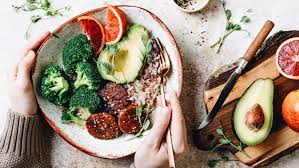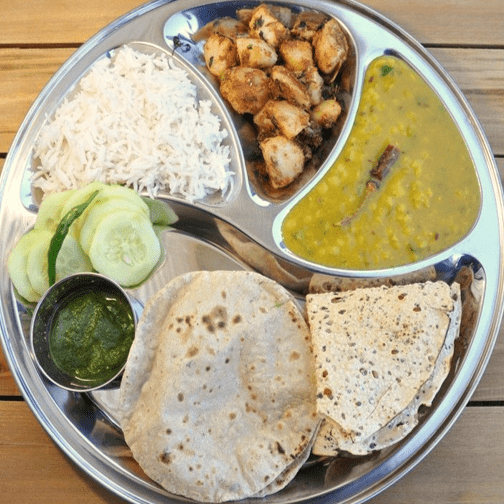For individuals navigating the complexities of Irritable Bowel Syndrome (IBS), finding a suitable and sustainable dietary approach can be a significant challenge. A growing number of people are exploring plant-based diets for various health and ethical reasons, yet the intersection of a vegan lifestyle with IBS management requires careful consideration. This guide aims to provide practical, evidence-based insights into incorporating sufficient vegan protein ibs-friendly sources into your diet, helping you manage symptoms while embracing plant-based eating.

Understanding Vegan Protein and IBS
Adopting a vegan diet means eliminating all animal products, including meat, dairy, and eggs. While rich in fiber, vitamins, and antioxidants, plant-based diets can sometimes present challenges for those with IBS due to the presence of certain carbohydrates known as FODMAPs (Fermentable Oligosaccharides, Disaccharides, Monosaccharides, and Polyols). Understanding how these plant components interact with your digestive system is crucial for symptom management.
The Intersection of Plant-Based Diets and Gut Health
Many plant foods, particularly legumes and some grains, are excellent sources of protein but can also be high in FODMAPs, potentially triggering IBS symptoms like bloating, gas, and abdominal pain. A balanced vegan diet for IBS therefore requires strategic food choices and preparation methods to ensure adequate symptom management. Focusing on low-FODMAP vegan protein options becomes a key strategy in maintaining gut comfort while adhering to a plant-based lifestyle.
Potential Benefits of a Vegan Approach for IBS
Despite the challenges, a carefully planned vegan diet can offer benefits for some individuals with IBS. Plant-based diets are typically high in fiber, which, when introduced gradually and in the right forms, can help regulate bowel movements for both constipation-predominant and diarrhea-predominant IBS. Additionally, a focus on whole, unprocessed plant foods can reduce exposure to additives and unhealthy fats often found in processed foods, which can be common IBS trigger foods for many.
Navigating Vegan Protein Sources with IBS
The key to a successful vegan diet for IBS lies in selecting protein sources that are both nutritionally robust and gut-friendly. This often means opting for low-FODMAP plant proteins or preparing higher-FODMAP options in ways that reduce their fermentable carbohydrate content.
Top Low-FODMAP Vegan Protein Options
Identifying reliable sources of vegan protein ibs-friendly foods is essential for maintaining adequate nutrient intake without exacerbating symptoms. A variety of plant-based options can provide necessary protein while being gentle on the digestive system.
Tofu and Tempeh: These soy-based products are excellent protein sources. Firm or extra-firm tofu, in particular, is generally low in FODMAPs because the fermentation and pressing processes reduce its FODMAP content. Tempeh, a fermented soy product, is also a good option and can be digested more easily by some individuals due to fermentation.
Lentils and Chickpeas (in moderation/prepared correctly): While traditionally high in FODMAPs, canned and rinsed lentils and chickpeas can be low-FODMAP in smaller portions (e.g., 1/4 cup per serving). Rinsing helps reduce the fermentable oligosaccharides. Gradually test your tolerance for these versatile legumes.
Quinoa: This complete protein pseudo-grain is naturally low in FODMAPs and provides essential amino acids. Quinoa is highly versatile, serving as a base for meals, an addition to salads, or even a breakfast porridge. It offers a substantial protein boost without the typical digestive distress.
Seeds (Chia, Flax, Hemp): Chia, flax, and hemp seeds are not only rich in protein but also provide healthy fats and fiber. They are generally well-tolerated in moderate amounts. Sprinkle them on salads, blend into smoothies, or use them as an egg substitute in baking. These seeds offer a convenient way to boost protein intake.
Nuts (certain types, in moderation): Specific nuts like walnuts, pecans, and macadamia nuts are considered low-FODMAP in small servings and provide a good source of protein and healthy fats. Almonds are low-FODMAP in very small quantities (around 10-15 nuts), but larger servings become high in FODMAPs. Always mindful of portion sizes to avoid triggering symptoms.
Vegan Protein Powders (low-FODMAP certified): Pea protein and rice protein powders are often low-FODMAP and can be a convenient way to supplement protein intake, especially for those with high protein needs or limited food choices. Look for brands that explicitly state they are low-FODMAP certified to ensure they are safe for your digestive system.
Vegan Proteins to Approach with Caution
While the goal is to enjoy a wide variety of plant-based foods, some common vegan protein sources may be IBS triggers for certain individuals. It is important to identify these potential problematic foods through careful observation and possibly an elimination diet.
High-FODMAP Legumes: Kidney beans, black beans, and most varieties of lentils (not canned and rinsed) are typically high in FODMAPs and can cause significant digestive distress for many with IBS. If you wish to consume these, try very small portions after thorough rinsing or consider sprouting them to reduce FODMAP content, if tolerated.
Some Soy Products: While firm tofu and tempeh are often well-tolerated, softer tofu, soy milk made from whole soybeans, and edamame can be high in FODMAPs. Check labels for ingredients in soy-based products, as the processing can significantly impact FODMAP levels. Opt for varieties made from soy protein isolate or fermented options.
Certain Grains: Wheat and barley are high in FODMAPs, meaning many standard bread and pasta products are not suitable. While oats are generally low-FODMAP, some individuals might react to them due to other sensitivities. Explore gluten-free grains like rice, corn, and oats (if tolerated) as alternatives.
Processed Vegan Foods: Many highly processed vegan meat alternatives or snacks can contain hidden high-FODMAP ingredients like onion or garlic powder, or other additives that may trigger IBS symptoms. Always read ingredient labels carefully and prioritize whole, unprocessed foods. Minimal ingredients are often best.
Practical Strategies for a Vegan IBS Diet
Integrating vegan protein ibs-friendly options into your daily routine requires more than just knowing what to eat; it also involves mindful preparation and self-awareness. These strategies can help you build a sustainable and comfortable diet.
Gradual Introduction and Portion Control
When introducing new plant-based proteins, especially those that can be ambiguous like lentils or specific nuts, start with very small portions. Monitor your body’s response over a few days before increasing the quantity. This gradual approach allows your digestive system to adjust and helps you identify your personal tolerance levels. Small, frequent meals may also be beneficial for some individuals.
Cooking Methods and Preparation Tips
The way you prepare your food can significantly impact its digestibility. Soaking and thoroughly rinsing legumes, for instance, can reduce their FODMAP content. Fermented foods like tempeh or sourdough bread (if gluten-free) can be easier to digest. Cooking methods like boiling and steaming are often gentler than frying for those with IBS. For vegetables, steaming or stir-frying until tender can also improve tolerance.
Essential Nutrients and Supplementation
A well-planned vegan diet, even with IBS restrictions, can be nutritionally complete. However, attention should be paid to key nutrients like Vitamin B12, iron, calcium, Vitamin D, and omega-3 fatty acids, which can sometimes be harder to obtain from plant sources alone. Consulting with a dietitian can help ensure you are meeting all your nutritional needs and determine if supplementation is necessary. This is especially important when dealing with digestive issues that can impair nutrient absorption.
Tracking Symptoms and Personalization
Every individual with IBS is unique, and what works for one person may not work for another. Keeping a detailed food and symptom diary is an invaluable tool for identifying your personal triggers and safe foods. This personalized approach empowers you to fine-tune your vegan diet, focusing on foods that support your gut health and overall well-being. The goal is to create a dietary pattern that is both nourishing and comfortable, allowing you to enjoy a plant-based lifestyle without unnecessary distress.
Conclusion: A Personalized Path to Plant-Based Wellness
Embracing a vegan diet while managing IBS is an achievable goal, but it requires thoughtful planning and an individualized approach. By focusing on low-FODMAP vegan protein ibs-friendly sources, practicing careful preparation, and diligently tracking your symptoms, you can build a nourishing and comfortable plant-based eating plan. This guide serves as a starting point, offering practical advice to navigate your dietary choices. Remember, consistency and self-awareness are your greatest allies on this journey, enabling you to find a balanced and sustainable way of eating that supports your digestive health and overall well-being.
Try the Candor app, which lets you log meals, symptoms, and habits with your voice — and instantly generates insights based on your data. Download on the App Store / Google Play
These other resources could be helpful.





















